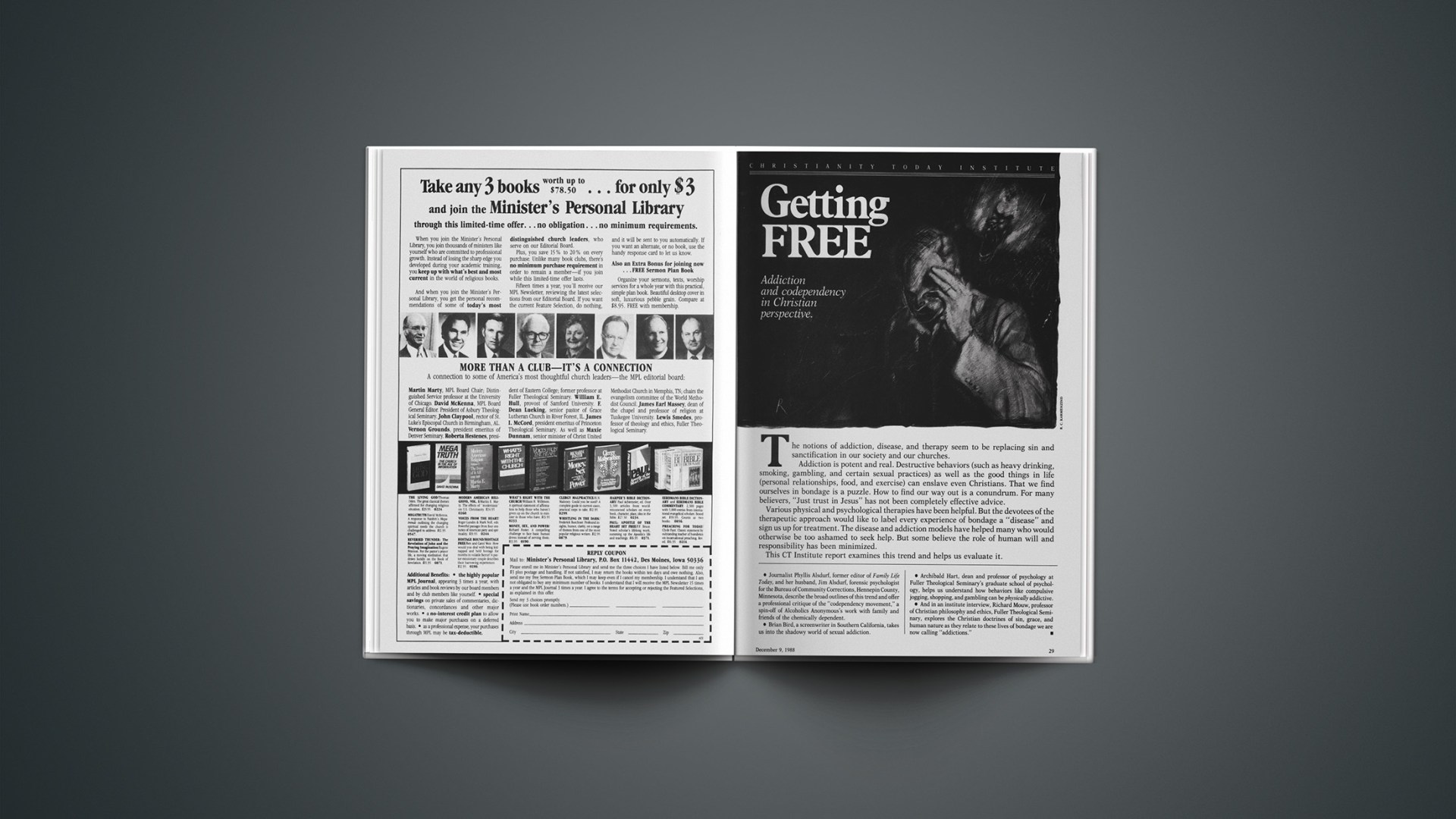Addiction and codependency in Christian perspective.
The notions of addiction, disease, and therapy seem to be replacing sin and sanctificaiion in our society and our churches.
Addiction is potent and real. Destructive behaviors (such as heavy drinking, smoking, gambling, and certain sexual practices) as well as the good things in life (personal relationships, food, and exercise) can enslave even Christians. That we find ourselves In bondage is a puzzle. How to find our way out is a conundrum. For many believers, “Just trust in Jesus” has not been completely effective advice.
Various physical and psychological therapies have been helpful. But the devotees of the therapeutic approach would like to label every experience of bondage a “disease” and sign us up for treatment. The disease and addiction model have helped many who would otherwise be too ashamed to seek help. But some believe the role of human will and responsibility has been minimized.
This CT Institute report examines this trend and helps us evaluate it.
• Journalist Phyllis Alsdurf, former editor of Family Life Today, and her husband, Jim Alsdurf, forensic psychologist for the Bureau of Community Corrections. Hennepin County, Mi nnesota, describe the broad outlines of this trend and offer a professional critique of the “codependency movement,” a spin-off of Alcoholics Anonymous’s work with family and friends of the chemically dependent.
• Brian Bird, a screenwriter in Southern California, takes us into the shadowy world of sexual addiction.
• Archibald Hart, dean and professor of psychology at Fuller Theological Seminary’s graduate school of psychology, helps us understand how behaviors like compulsive jogging, shopping, and gambling can be physically addictive.
• And in an institute interview, Richard Mouw, professor of Christian philosophy and ethics, Fuller Theological Seminary, explores the Christian doctrines of sin, grace, and human nature as they relate to these lives of bondage we are now calling “addictions.”










